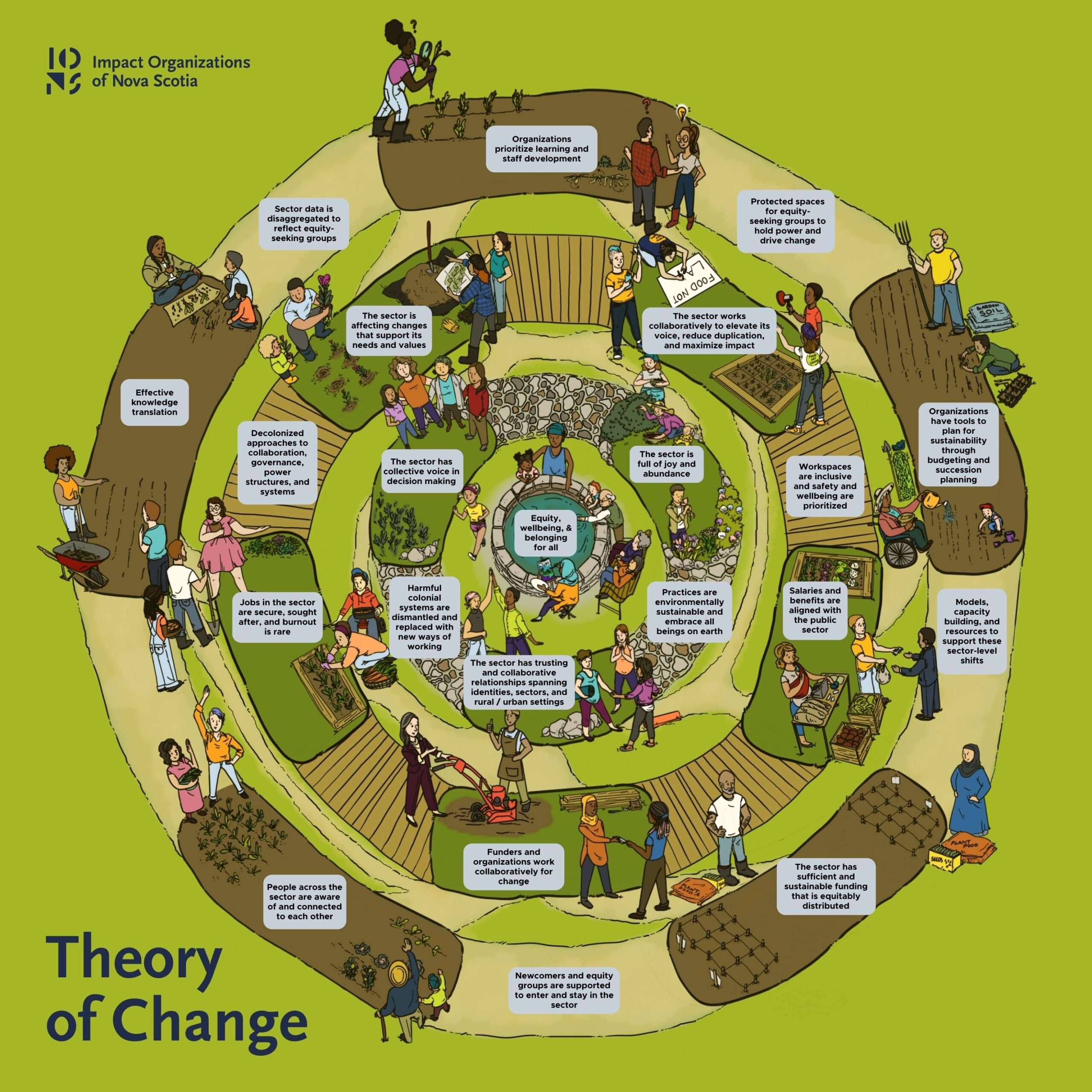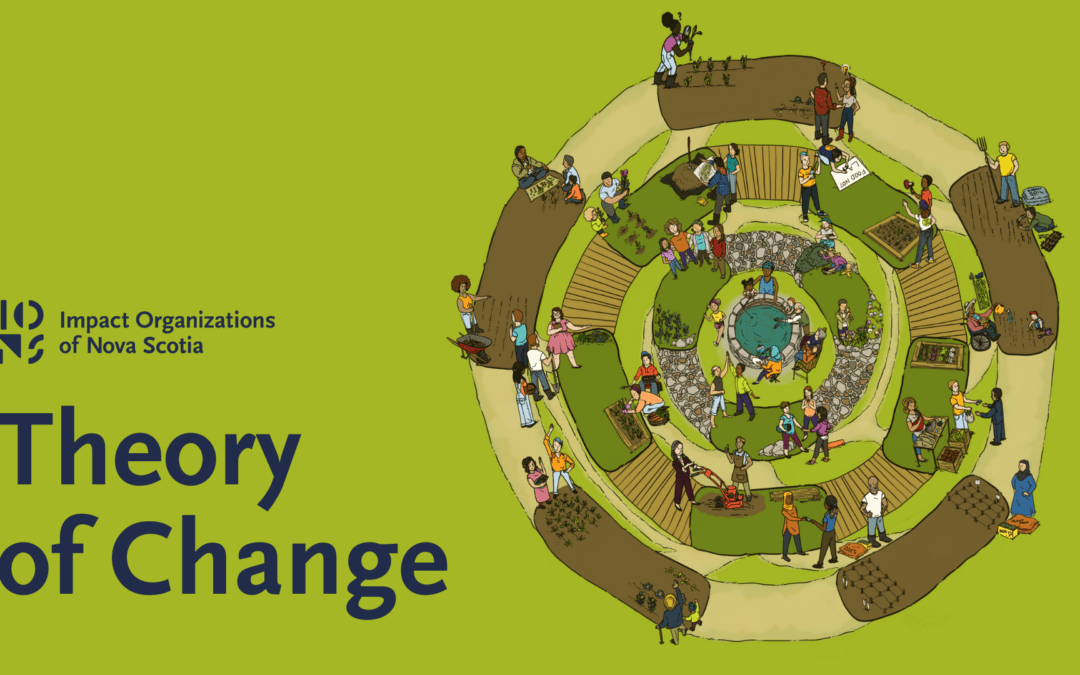For the best viewing experience we recommend interacting with
the Theory of Change Graphic in Full Screen view
Click on the white text on the graphic or press the forward and backward arrows on the bottom of the screen
to navigate through the Theory of Change and learn more about each component.
Our Theory of Change is the compass guiding the long-term aim of our work and how we believe it will come about. It is grounded in what we have heard from the sector and from others engaged in community impact work.
We have the vision of equity, wellbeing, and belonging for all that will be achieved by creating a valued, thriving, and well-supported Community Impact Sector in Nova Scotia.
Our sector is vast and diverse; it includes everything from food banks to local theatre to women’s shelters. The past two years have been transformative for communities across our province as we battle COVID-19 and the longstanding inequities and racism which the pandemic has only exacerbated. Throughout it all the Community Impact Sector has continued to provide essential support to our most vulnerable communities, often in the absence of sufficient resources, influence, or capacity. Strengthening this critical sector is essential for achieving our vision.
We believe these are the core components of a thriving community impact sector:
-
- Collective Voice – the sector works together to influence decisions which affect it.
- Joy, Innovation and Abundance – people experience feelings of validation, celebration, and motivation.
- Relationships – the sector has trusting and collaborative relationships spanning identities, sectors, and rural/urban settings.
Justice, Equity, Decolonization, Diversity, and Inclusion
Our vision can not be realized without addressing Justice, Equity, Decolonization, Diversity and Inclusion (JEDDI) in our communities. Harmful colonial systems must be dismantled and replaced with new ways of working, including working practices that are respectful of the environment.
At a sector level, we need to focus on JEDDI practices, shifting power to equity-deserving groups, and creating safe work cultures where everyone can thrive. Members of equity-deserving groups need protected spaces to hold power and drive change.
Sector-level shifts for a thriving community impact sector in Nova Scotia
The Community Impact Sector is part of an ecosystem of government bodies, businesses, institutions, and many individuals. We need to draw on each other’s strengths and expertise to create the conditions for sector-level shifts to be possible. Across all areas it is critical that the sector has access to models, resources, and learning opportunities to support these shifts.
Based on our sector engagement and research, the following sector-level shifts are needed to help organizations thrive and increase impact:
-
- Collaboration – we believe in the power of collaboration and that by prioritizing relationship building within the sector and with funders we will reduce duplication and achieve greater impact. People across the sector and beyond need to be aware of and connected to each other.
-
- Capacity & Resources – in order for the sector to thrive, we must be well resourced and have the capacity to recruit, retain, and support staff through competitive salaries and benefits, job security, reduced burnout, and capacity building opportunities. Sufficient, sustainable, and equitably distributed funding is needed. Leaders require access to tools to plan for sustainability through budgeting and succession planning. Learning and staff development needs to be prioritized and resourced.
-
- Collective Voice – our sector is diverse and works closely with diverse and marginalized communities in our province, and it is critical that we work together to elevate our voice and effect changes that support community needs and values. We need sector data that helps us understand our current resources, capacity, and accomplishments, as well as what is important to us. This data needs to be disaggregated to accurately reflect the needs of equity-deserving groups. We will also benefit from knowledge translation that explains key issues and policies for the sector to policy makers and funders.
Our Assumptions
Every Theory of Change is grounded in beliefs and assumptions held by its creators. We have assumed that:
-
- A thriving Community Impact Sector will help to support equity, wellbeing, and belonging for all;
- The way people feel in their work affects the impact they can have;
- Organizations in the sector have some alignment in their needs and values;
- The sector values knowledge translation;
- Decision-makers value data and evidence-based approaches;
- Working collaboratively leads to greater long-term impact; and
- Funders are willing and able to give more funding to the sector, and more equitable access to funding for Black and Indigenous-led organizations.

IONS Theory of Change
Downloadable PDF version with Narrative
Liked this post? Please share!
